Best mid-range GPUs of 2023
We all love the ridiculous performance of the RTX 4090, and AMD’s more-affordable top-tier 7900 XTX and XT are incredible cards for the money, but these are niche cards. The cream of the crop. Only buyable by those with the deepest of pockets. If the Steam Hardware survey is anything to go by, only a few scant percent of gamers will ever get their hands on cards like these. The real majority of gamers stick to mid-range cards, and thankfully, there’s a lot to be excited about there, too.
Following the major launches of Nvidia and AMD’s latest generation cards, we’re finally seeing some trickle down releases of more affordable, but equally-exciting, mid-range graphics cards from both the RTX 40 and RX 7000 generations of GPUs. If you’re looking to upgrade to something from a newer generation but are still targeting 1080p and 1440p gameplay, you want one of the best mid-range graphics cards.
But which should you pick? AMD and Nvidia both have intriguing options from the latest – and occasionally last – generations, with unique features and performance profiles. Let’s take a look at which cards represent the best bang for buck value in 2023.
What is a PC Upgrade?
There’s a lot of competition for the best 1080p graphics card as it’s a resolution that almost any GPU can handle. However, if you buy the right graphics card you can get excellent performance without breaking the bank and there are a number of hot contenders.
AMD RX 7600
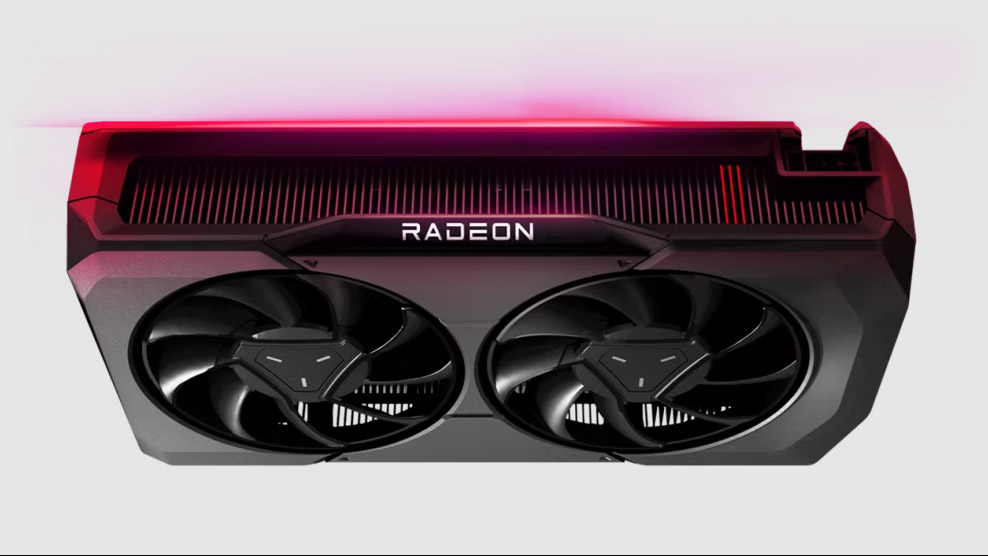
AMD’s Radeon RX 7600 is the first mid-range graphics card of the RDNA3 generation and it is far, far more affordable than its higher-tier cousins.
| | RX 7600 |
| Architecture | RDNA3 |
| Process | 6nm TSMC |
| Shaders | 2048 |
| Ray accelerators | 32 |
| Base clock | 1720Mhz |
| Game clock | 2250MHz |
| Boost clock | 2655MHz |
| Memory | 8GB GDDR6 |
| Memory speed | 18 Gbps |
| Memory bus | 128-bit |
| Bandwidth | 288 GBps |
| TDP | 165W |
Representing a big upgrade over the RX 6600 – though more of a modest one over the 6650 XT – the RX 7600 is a capable mid-range graphics card with a very attractive price tag. It features the latest generation of AMD’s ray accelerator technology, making it much better at ray tracing than its RDNA 2 predecessors, though it still falls behind Nvidia’s competition at this price point.
Great Saving
Claim a free Ubisoft game from ASUS with this graphics card*
-
8GB GDDR6 Graphics Memory
-
PCI Express 4.0 x8 Interface
-
Overclocked Edition
-
Outputs - HDMI and Display Port
In general rasterization, though, this card really shines. Like the mid-range options from the past-generation, the RX 7600 delivers raw power where Nvidia’s more optimized solutions are a little more nuanced. The RX 7600 has enough shaders and a high-enough game clock speed to deliver excellent performance in just about any modern game at 1080p. It’s based on an older 6nm process node, but that doesn’t appear to hold it back much, from a power or performance front.
The 8GB of VRAM may become a limitation for new AAA games in the future, as we’re starting to see some games that require more than 8GB to turn on all the graphical settings, even at 1080p. However, for now it’s not too big an issue, with most reviews showing this card as one of the best bang for buck 1080p graphics cards you can buy in 2023.
With a 165W TDP, too, this card is easy to run with just about any power supply. AMD recommends a 450W model, so this card could even work well just dropped in to some pre-built office machines which have enough power and a spare PCIExpress slot handy.
Nvidia RTX 4060
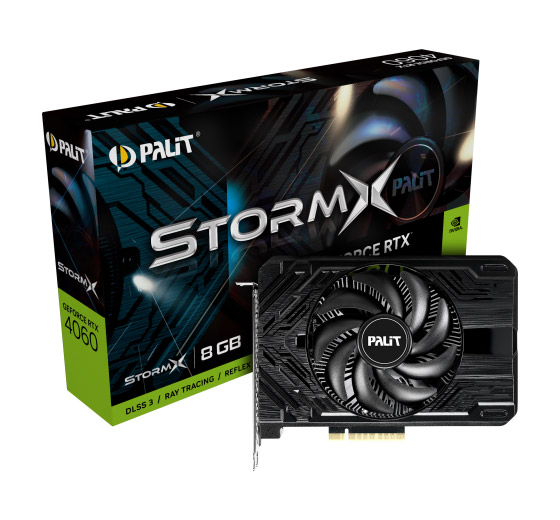
The Nvidia RTX 4060 is the baby of the Ada Lovelace generation – for now – with the fewest CUDA cores, the fewest RT cores, and the fewest tensor cores. But while it might not measure up to its bigger siblings, its latest generation architecture and new tensor and RT cores designs, make this card an intriguing alternative for 1080p gameplay.
| | RX 4060 |
| Architecture | Ada Lovelace |
| Process | 5nm TSMC |
| CUDA cores | 3072 |
| RT cores | 24 |
| Base clock | 1830MHz |
| Boost clock | 2460MHz |
| Memory | 8GB GDDR6 |
| Memory speed | 17 Gbps |
| Memory bus | 128-bit |
| Bandwidth | 272 GBps |
| TDP | 115W |
The RTX 4060 is an intriguing card for Nvidia, because where its top-tier models have shown an increasing tendency towards high power draw, the RTX 4060 is comparatively lean. With a TDP of just 115W, it’s not far off from not needing an external power connector at all, and some enterprising modder or manufacturer would easily be able to turn one of these into a passively-cooled graphics card.
Whatever version of the RTX 4060 you buy, though, it’d be a great fit for a compact or low-power gaming PC.
With over 3,000 new-generation CUDA cores, and a near-2.5GHz clock speed, the RTX 4060 represents a strong increase in performance over the last generation, and handily pumps out high frame rates in any modern game at 1080p. In most games outside of the prettiest AAAs, too, you should be able to enjoy high frame rates at High settings.
Great Saving
-
8GB GDDR6 Graphics Memory
-
PCI Express 4.0 x8 Interface
-
Cooler Type - WINDFORCE
-
Overclocked Edition
-
Outputs - HDMI and Display Port
As with the AMD RX 7600, this card does have a limited 8GB of VRAM, which will mean turning down the odd setting in games like Hogwarts Legacy, which are known for being VRAM hogs. However, in most other games it shouldn’t be a major issue for sometime yet.
Ray tracing performance is excellent for this kind of price thanks to the new-generation RT cores. They are limited in number, though, so overall RT performance is still far behind the capabilities of the top cards and may not always be worth enabling due to the performance hit. However, in games with Deep Learning Super Sampling (DLSS) support, you can leverage the latest generation tensor cores on this card to improve performance a lot. Especially if DLSS 3 frame generation is available. This is the most affordable desktop GPU that supports DLSS 3, so if you’re planning to play games that support it, upgrading to this card could be well worth it.
Best graphics card for 1440p
Gaming at 1440p is much more demanding than 1080p, but it falls well short of the extreme needs of 4K, so it’s a great middle-ground for enhancing your games visuals without an exorbitant price tag. You will need to spend more than you would at 1080p, but there are some last-gen options which are well worth considering.
AMD RX 6700 XT
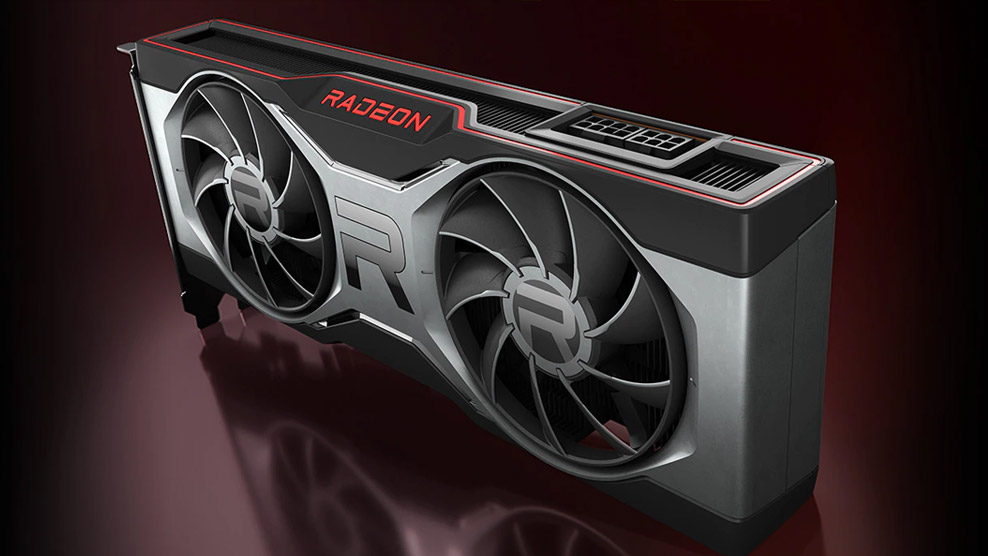
It might be a generation old, but the AMD RX 6700 XT is still an absolutely killer graphics card for the money and it is perfectly suited for 1440p play. It’s not the best solution for ray tracing in games, but for general rasterization, it gives the latest generation cards a real run for their money.
| | RX 6700 XT |
| Architecture | RDNA 2 |
| Process | 7nm TSMC |
| Shaders | 7nm TSMC |
| Ray accelerators | 40 |
| Base clock | 2321MHz |
| Game clock | 2424MHz |
| Boost clock | 2581MHz |
| Memory | 12GB GDDR6 |
| Memory speed | 16 Gbps |
| Memory bus | 192-bit |
| Bandwidth | 384 GBps |
| TDP | 230W |
A quick glance at the specifications shows that this is very much a last-generation GPU, with its older architecture and process node, and more modest memory speeds. However, while there are areas it can’t stand up to the latest and greatest, it continues to be a solid value graphics card for 1440p play for its sheer brute force ability.
With over 2,500 RDNA2 shaders, clocked at close to 2.5GHz in general gaming, the RX 6700 XT can outperform any of our 1080p graphics cards by quite some margin. In the absence of a 7700 XT (for now), this is the best AMD graphics card for 1440p play – as long as ray tracing is turned off. It especially excels in games where it can utilize FidelityFX Super Resolution (FSR) too, even if it still isn’t as impressive as DLSS.
-
12GB Graphics Memory
-
PCI Express 4.0 x16 Interface
-
Cooler Type - Dynamic Fan
-
Outputs - HDMI and Display Port
One specification that really highlights this card’s future potential at 1440p too, is its 12GB of VRAM. Where 8GB cards are going to struggle with higher resolution and detail play in the years to come, 12GB should give this card plenty of breathing room for several more generations of games.
Nvidia RTX 4070
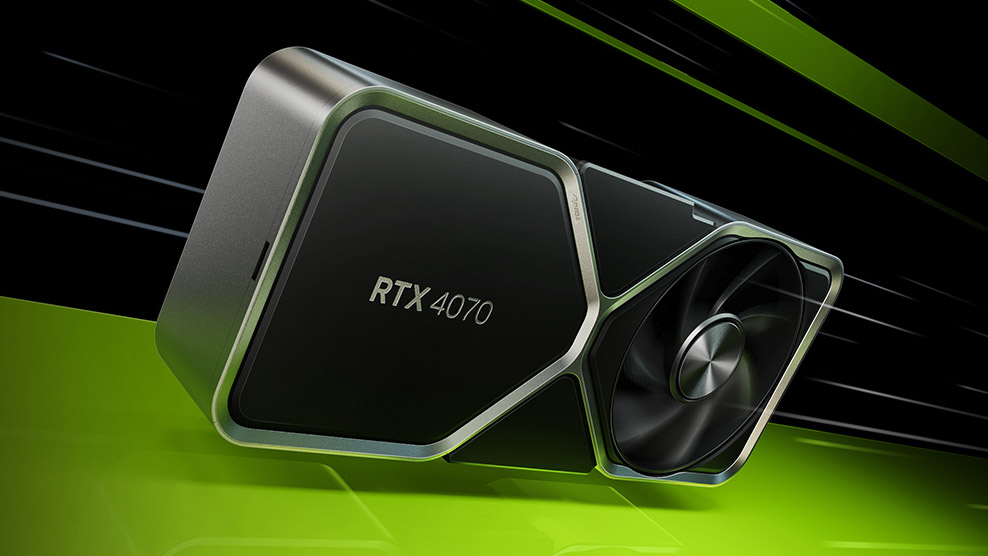
It might stretch the definition of mid-range with its relatively high price tag, but the Nvidia RTX 4070 is a stellar 1440p gaming graphics card. It has all the performance you need for general rasterized gameplay, as well as next-generation RT cores for enhanced ray tracing, and full support for DLSS 3, delivering a big performance boost in compatible games.
The RTX 4070 is a much more powerful card than the lower-tier 4060 GPUs. It’s based on the same architecture and process node, but has a massive 5888 CUDA cores, with a boost clock just shy of 2.5GHz. That delivers much greater performance than any of the other cards on this list – although it is much more expensive.
Great Saving
-
12GB GDDR6X Graphics Memory
-
PCI Express 4.0 x16 Interface
-
Cooler Type - Active Fan
-
Overclocked Edition
-
Outputs - HDMI and Display Port
It comes with the latest generation of RT and tensor cores too, and with 46 of the former its ray tracing performance is excellent, easily rivalling some of the best cards from the previous generation. In compatible games with DLSS support too, it can absolutely fly.
As an RTX 40 GPU, it includes support for DLSS 3 frame generation, so in compatible games this card can offer much greater performance than cards without support for the technology. It’s not even close.
There’s 12GB of VRAM with this card too, so it’s likely to offer much better future proofing against upcoming games than cards with a mere 8GB of VRAM. It’s fast memory as well, and with that 192-bit memory bus even if 12GB becomes a limiting factor in the future, the overall bandwidth is high enough to ward that off for longer still.
Best graphics card for entry-level ray tracing
Ray tracing is still incredible demanding. It’s demanding on the graphics card that runs it, and it’s demanding on your wallet, because the graphics cards that are best for ray tracing tend to be the most high-end and the most expensive. There are graphics cards that are good enough for ray tracing though, especially if you don’t mind lower frame rates or if dynamic upscaling technologies are available.
Nvidia RTX 4060 Ti 8GB
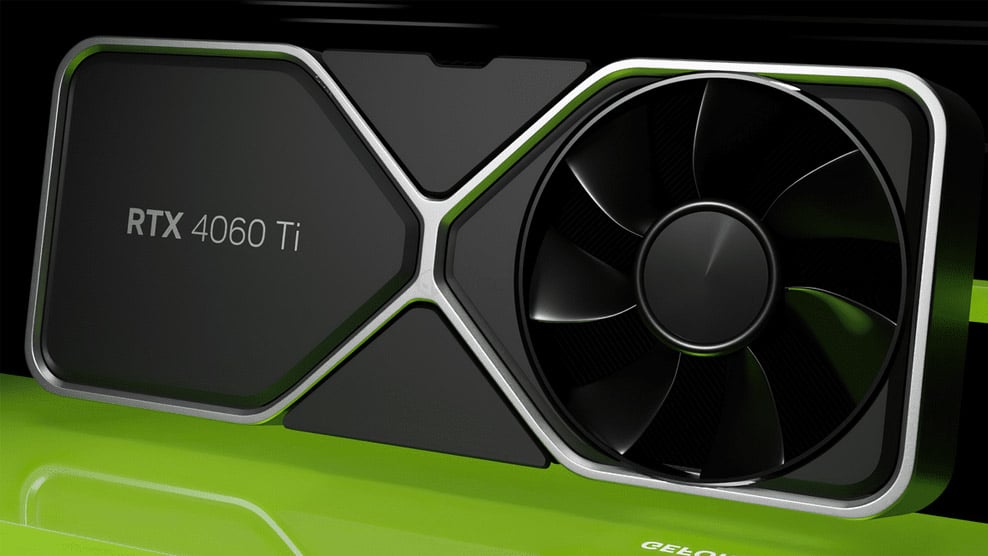
The RTX 4060 Ti has taken a little flak since its launch for a few reasons, but it still represents one of the best entry-level ray tracing graphics cards available today. With its new-generation hardware, enhanced feature support, and low TDP, it offers an affordable ray tracing solution for modern gaming.
The RTX 4060 Ti is a powerful new-generation graphics card that leverages a high quantity of CUDA cores to deliver impressive performance at 1080p and even dabble in 1440p in some games. Its support for DLSS 3 frame generation gives it a big boost in supporting games, helping it to easily outstrip even flagship cards from recent generations.
Its 8GB of VRAM is a limiting factor in some modern games, and you’ll need to play with the settings to assure you don’t bump up against that limit. However, once you do, you’ll have a powerful card with support for all the most exciting modern gaming features.
The pinnacle of those, has to be ray tracing. With 36 of the latest generation of RT cores and plenty of tensor cores for DLSS, the RTX 4060 Ti is the most affordable ray tracing graphics card of its generation where it’s actually viable. The RTX 4060 can do it, but it just doesn’t have the power to really make it work. The RTX 4060 Ti does.
Still unsure about the VRAM? Hold on just a little longer. A 16GB version of the card is right around the corner.
Conclusion
The latest generation graphics cards from AMD and Nvidia are still weighted towards the top end, but we’re starting to see some truly exciting mid-range and entry-level graphics cards with all of the new features of the latest hardware.
If you just want to try out ray tracing, there’s a card for you. Looking for high-performance 1080p play? The latest cards offer awesome performance. Don’t discount the last-gen though. There are still some real gems to be had there while stocks last.







